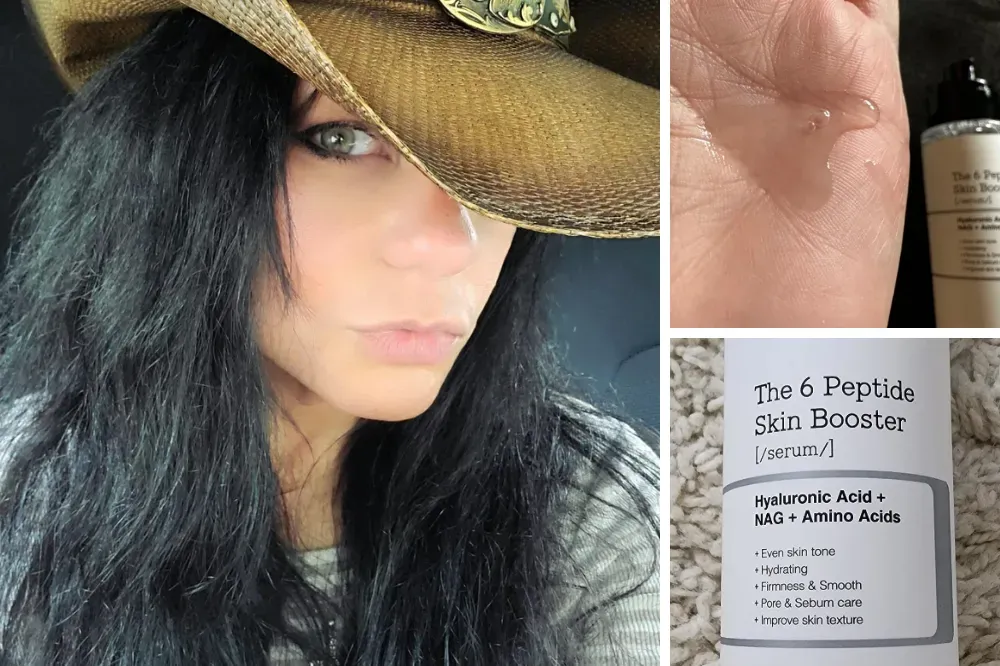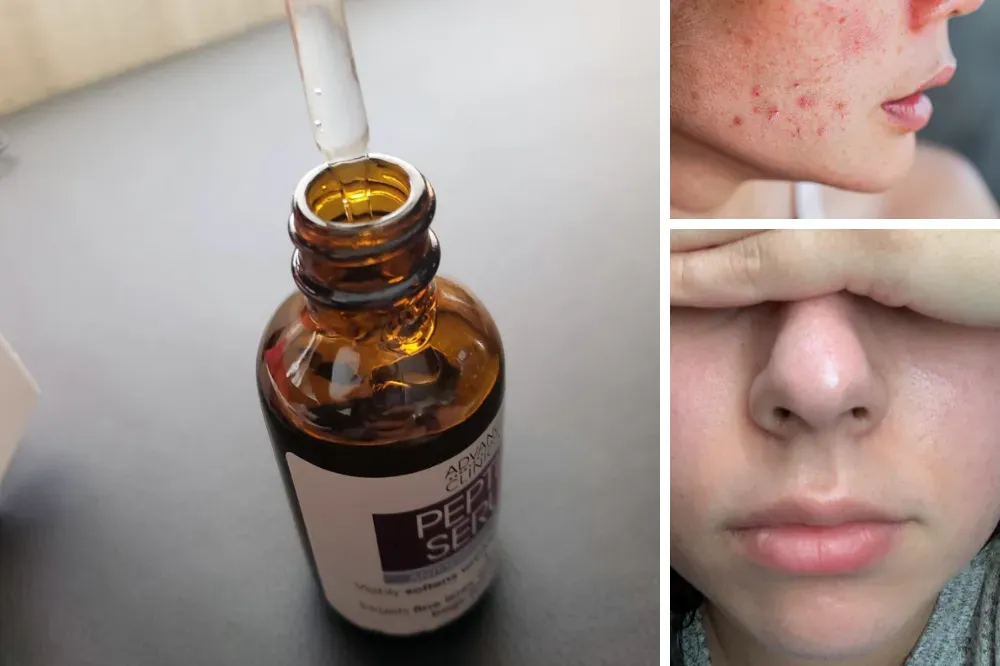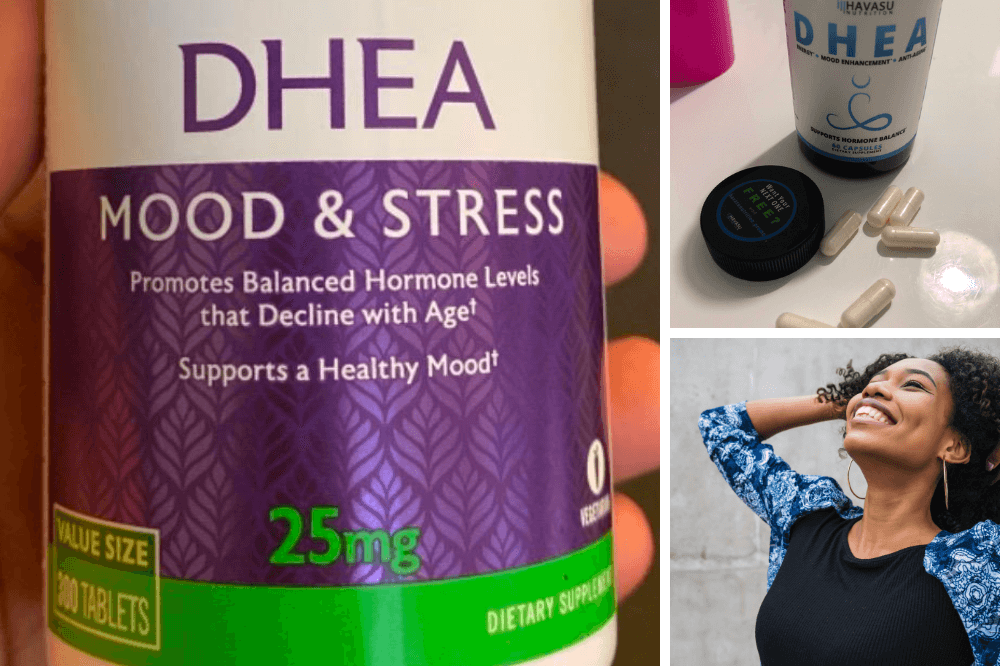Introduction
In the pursuit of youthful, glowing skin, the peptide vs. retinol debate is a key topic in the skincare community. These powerful ingredients are praised for their anti-aging benefits and skin-transforming abilities. But, with both claiming to be a fountain of youth, which is better?
Choosing skincare ingredients is not a one-size-fits-all approach. Our skin is unique, each with its own characteristics and reactions. While Retinol may bring to mind revitalized skin for some, it can cause redness and irritation for others. On the other hand, peptides are known for their gentleness and suitability for sensitive skin.
Understanding our skin's needs is essential in deciding whether to use peptides, Retinol, or both in our skincare routine. This article aims to demystify these ingredients, highlighting their benefits and limitations, to help you make the best choice for your skin's well-being.
As we explore the science behind each ingredient, their effects on sensitive skin, and the complexities of collagen production and skin renewal, let's uncover whether peptides or Retinol should have a place in your skincare routine.
Understanding Peptides and Retinol
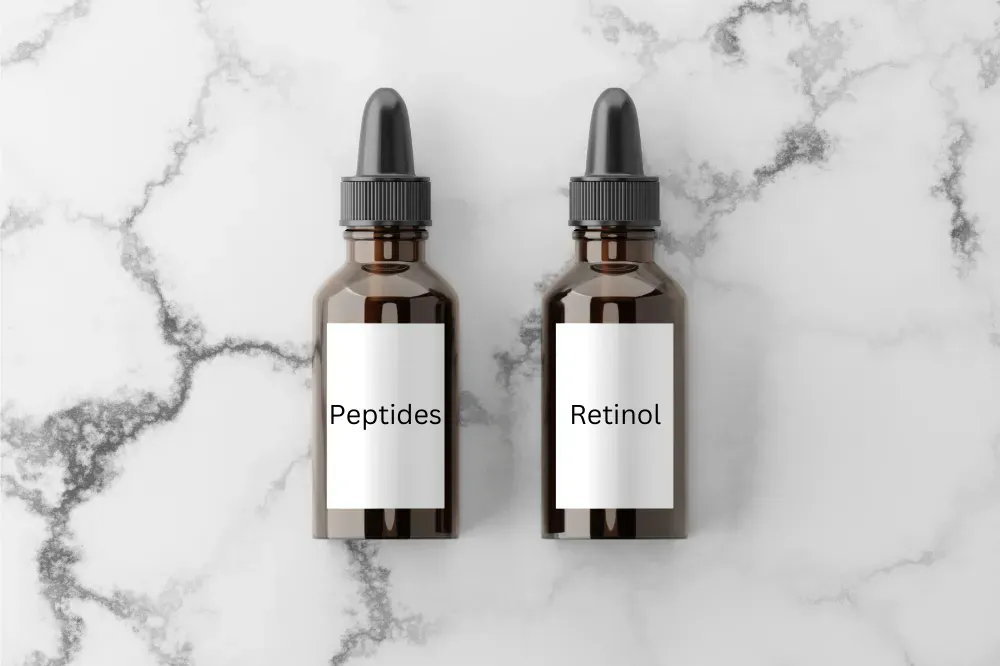
In the skincare world, two ingredients stand out for their remarkable effects on skin health: peptides and Retinol. Peptides, short chains of amino acids connected by peptide bonds, are the building blocks of proteins, including collagen in the skin. They stimulate collagen production, leading to firmer, more youthful-looking skin. Peptides also have healing properties, helping to mend the skin barrier and reduce inflammation.
Retinol, a derivative of Vitamin A, promotes skin cell turnover and renewal. By shedding dead skin cells faster, it reveals fresher, less damaged cells. Retinol smooths existing fine lines and wrinkles, prevents new ones, diminishes sun damage and pigmentation, and improves skin texture, tone, and color.
Understanding the individual and combined effects of peptides and Retinol is essential for addressing sensitive skin, collagen production, and skin renewal. Gain insights into which ingredient suits your skincare needs.
The Science Behind Peptides
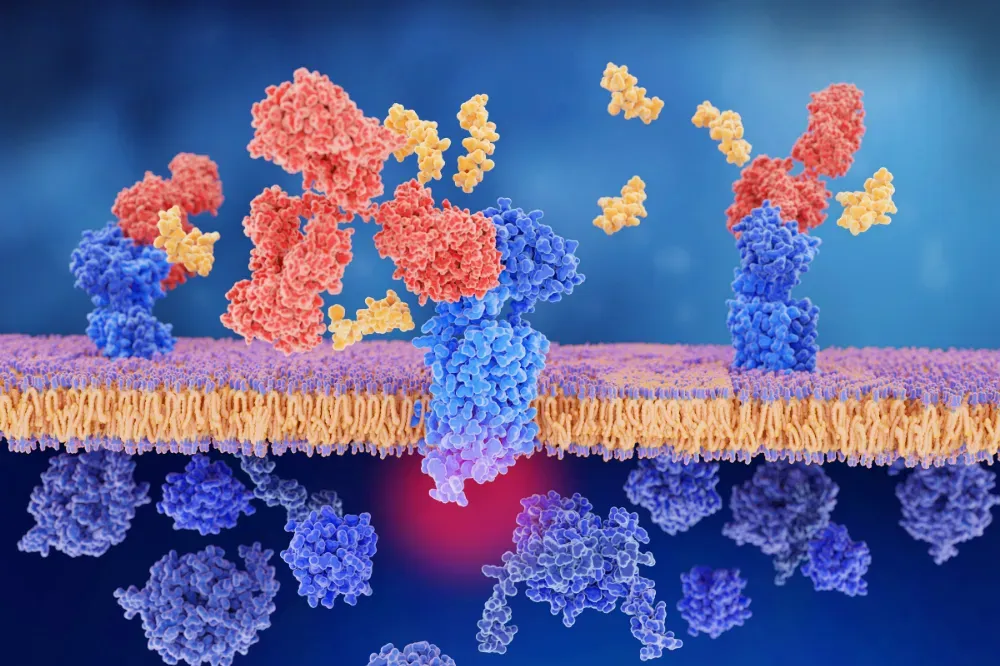
The debate between the efficacy of peptides versus Retinol in skincare circles often centers on their distinct biological mechanisms and the scientific evidence supporting their use. Peptides, in particular, have garnered attention for their role in enhancing skin health and appearance.
The Building Blocks of Peptides
Peptides are composed of amino acids, which are the foundational elements of proteins—crucial molecules that perform a vast array of functions within our bodies. These amino acids are linked together by peptide bonds, forming chains of varying lengths. When these chains are short, we refer to them as peptides, and when they are long and complex, they fold into structures known as proteins.
How Peptides Work
The function of peptides in skincare hinges on their ability to signal the skin to produce more collagen, which is the primary protein responsible for the skin's strength and elasticity, and to keep the skin firm. As we age, collagen production naturally decreases, leading to the formation of wrinkles and a loss of firmness. Topical application of peptides has been shown to stimulate collagen synthesis, thus helping to mitigate these signs of aging.
Some peptides also act as neurotransmitter inhibitor peptides, with a mechanism of action similar to botulinum toxin, albeit much milder. These peptides can minimize the intensity of muscle contractions in the face, thereby reducing the appearance of expression lines. This effect has been documented in clinical studies, such as one published in the International Journal of Cosmetic Science, where a cream containing a peptide complex was shown to reduce wrinkle depth after prolonged use.
Contributions to Skin Firmness and Health
The strengthening of the skin barrier is another significant contribution of peptides. An effective skin barrier retains moisture and protects against environmental insults. Peptides aid in this aspect by reinforcing the skin's natural defense system and maintaining hydration levels. Moreover, some peptides exhibit anti-inflammatory properties that can soothe irritation and may improve dermatological conditions like rosacea or acne.
Evidence of peptides' contributions to skin health is supported by various studies, including research published in the Journal of Cosmetic Dermatology, which suggests that certain peptides can improve skin barrier function and hydration.
The Efficacy of Retinol
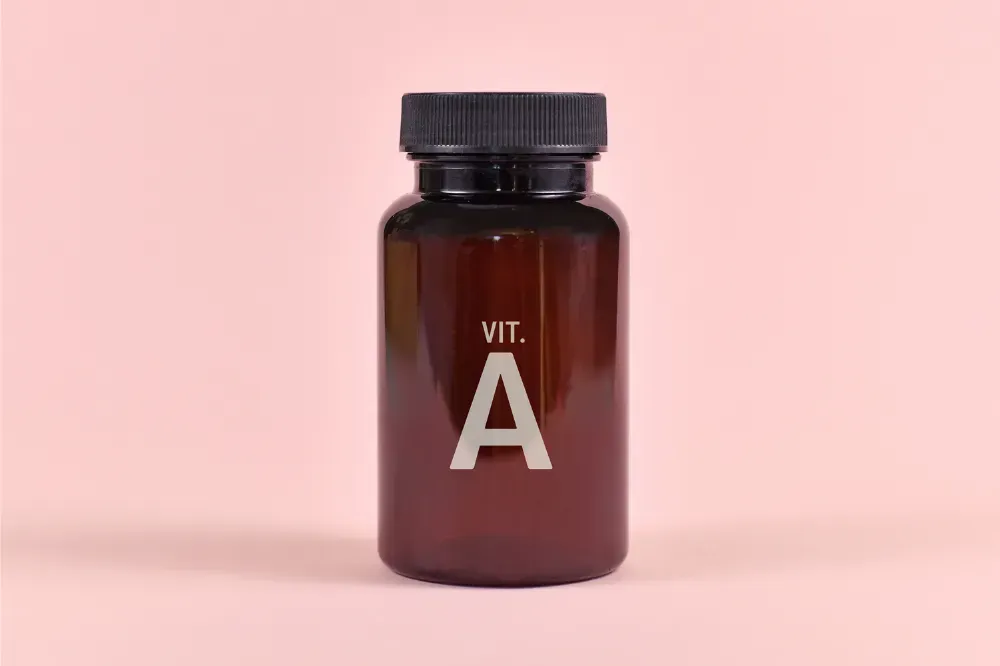
When considering the effectiveness of skincare ingredients, Retinol is often cited for its well-documented benefits in anti-aging and skin health improvement. Derived from vitamin A, Retinol is celebrated for promoting skin renewal.
The Mechanism of Retinol
Retinol operates by promoting skin cell turnover and preventing the breakdown of collagen, which is crucial for maintaining the structural integrity of the skin. This dual action not only helps in the acceleration of new cell production but also shields against the degradation of existing cellular structures, thus maintaining a youthful appearance.
Benefits in Reducing Wrinkle Formation
Scientific studies have repeatedly shown that Retinol can significantly reduce wrinkle formation. For instance, a randomized parallel control trial evaluating the efficacy and impact of two concentrations of Retinol revealed improvements in aging skin conditions when using retinol-infused dermo-cosmetic products, suggesting its potency in minimizing the signs of aging.
Repairing Sun Damage
The reparative effects of Retinol extend to mitigating sun damage, one of the primary culprits behind premature skin aging. By promoting the replacement of damaged cells with new ones, Retinol helps restore the skin's vitality. A comparative study on the effects of Retinol versus retinoic acid highlighted Retinol's clinical efficacy, especially for women without prior skin disease, showcasing its restorative capabilities on sun-damaged skin.
Long-Term and Concentration-Specific Effects
Long-term studies have also been instrumental in assessing the difference in efficacy and effect rate of various concentrations of Retinol. Research indicates that different concentrations of Retinol can deliver varied results, emphasizing the importance of selecting a suitable concentration for desired outcomes.
Comparing Effects on Sensitive Skin
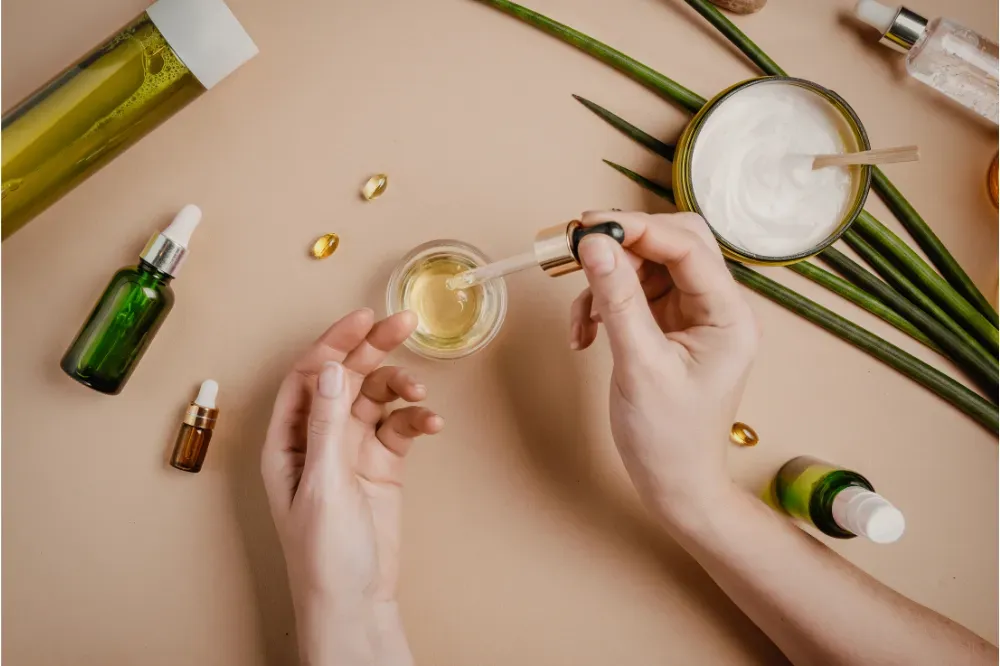
The comparison between peptides and Retinol for sensitive skin pivots on the balancing act of efficacy and tolerance. Sensitive skin is characterized by hyper-reactivity to environmental factors and cosmetics, often leading to redness, dryness, and inflammation. Hence, when selecting actives for skincare, the gentleness of the ingredient becomes as crucial as its effectiveness.
Sensitivity of Skin to Retinol
While highly regarded for its skin-rejuvenating properties, Retinol is notorious for causing irritation in sensitive skin types. The robustness of its action can lead to adverse effects such as redness, peeling, and heightened sensitivity, particularly during the initial phase of use. This is well-documented, with studies indicating that certain individuals may experience irritancy potential when using topical retinoids.
Peptides as a Gentler Alternative
On the other hand, peptides are often celebrated as a milder alternative that does not compromise on delivering anti-aging benefits. A peptide used in specific regimens has been illustrated to reduce the appearance of fine lines and wrinkles without inducing the adverse effects often associated with retinol or stronger retinoids. These findings suggest that peptides could be a preferred choice for those with sensitive skin, offering efficacy and a lower risk of irritation.
Moreover, research has underscored the role of topical peptides in various sensitive skin applications, from moisturizers to gentle cleansing detergents. Their versatility in formulation and the absence of harsh reactions make them suitable candidates for daily skincare routines aimed at addressing aging concerns in sensitive skin.
While both Retinol and peptides are effective in their own right, the choice between the two should be informed by an individual's skin sensitivity and tolerance. For those prone to irritation, peptides may provide a feasible route to achieving skin health without the discomfort associated with retinol use. However, it is essential for users to consult with dermatology professionals to tailor a skincare regimen that aligns with their specific skin type and concerns.
Collagen Production and Skin Renewal
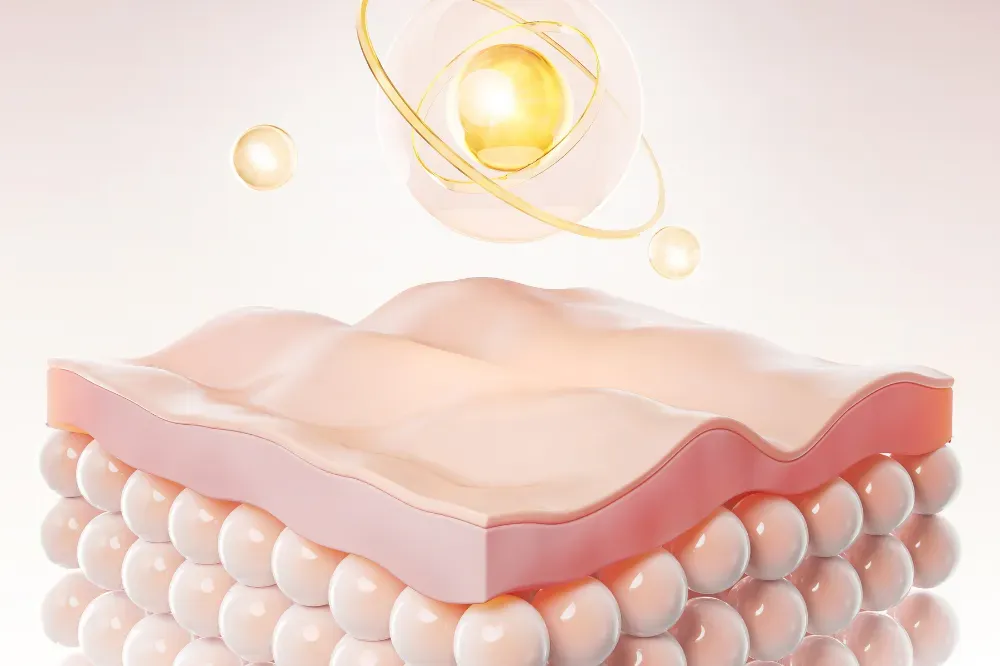
Collagen is the scaffold of the skin, providing it with structure, firmness, and elasticity. As we age, our body's natural collagen production declines, leading to the common signs of aging, such as wrinkles, sagging skin, and loss of radiance. Skincare enthusiasts often turn to ingredients like peptides and Retinol for their reputed abilities to boost collagen production and promote skin renewal.
Peptides and Retinol in Boosting Collagen
Peptides are short chains of amino acids that serve as the building blocks of proteins, including collagen in the skin. They are known for their role in signaling the skin to produce more collagen, thereby contributing to increased firmness and elasticity. A study published in the Journal of Cosmetic Dermatology reports a synergistic action of a triple peptide complex on essential extracellular matrix proteins, which exhibited significant anti-aging benefits by promoting fibroblast renewal and increasing collagen synthesis.
Retinol, a form of vitamin A, has been a cornerstone ingredient in skincare because of its profound effects on cell turnover and collagen synthesis. Apart from accelerating the rate of skin renewal, Retinol also helps in the regulation of collagenase, the enzyme responsible for collagen breakdown, therefore preventing the loss of this vital protein. The literature supports that Retinol and derivatives have compelling evidence showing they can help regenerate aging skin and improve its appearance.
The Impact on the Aging Process
When it comes to mediating the aging process, both peptides and Retinol have shown promising results. Research demonstrates that certain collagen peptides can directly stimulate the dermis to enhance collagen production, contributing to skin that appears more youthful with less visible wrinkles and enhanced texture.
Similarly, Retinol's impact on skin aging is multifaceted. Its ability to increase collagen production and speed up cell turnover makes it an effective ingredient in treating photoaged skin and improving overall skin health. Studies have noted improvements in skin smoothness, pigmentation, and fine lines with consistent retinol use.
Maintaining Radiant Skin
Radiant skin is often a reflection of its health at the cellular level. As we age, not only does collagen production wane, but the skin's ability to naturally exfoliate and renew itself slows down. Both peptides and Retinol can reinvigorate these processes. For instance, peptides have been found to help re-hydrate aged skin and promote skin-cell renewal, while Retinol has been proven to improve skin radiance by enhancing surface cell renewal.
Side Effects and Skin Barrier Considerations
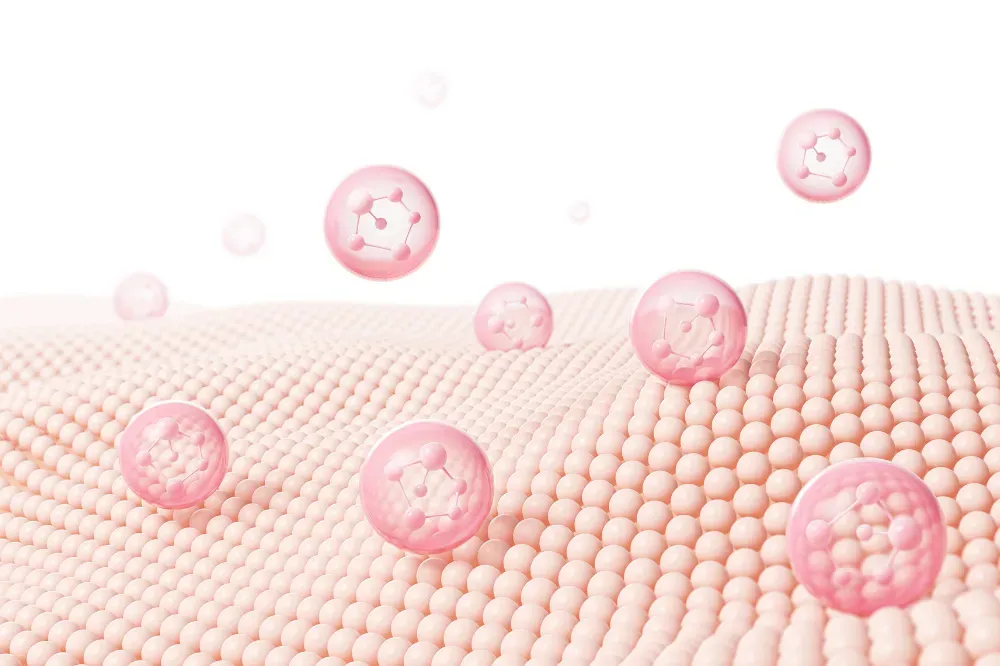
When incorporating powerful skincare ingredients into a routine, understanding their potential side effects is crucial. This becomes particularly relevant when comparing peptides and Retinol — two ingredients celebrated for their anti-aging properties but differing significantly in their impact on skin sensitivity and barrier function.
Adverse Reactions Associated with Retinol Products
Retinol is widely acknowledged for its transformative effects on the skin, catalyzing cell turnover and promoting collagen production. However, this potency comes with a trade-off in the form of skin irritation for some users. Adverse reactions can include redness, itching, or burning, particularly when using high-strength retinol products or applying them too frequently. These symptoms may be indicative of retinoid dermatitis, a common side effect characterized by skin flakiness and irritation.
Another significant consideration with retinol use is increased sun sensitivity. Like other exfoliating agents like alpha-hydroxy acids, Retinol can thin the stratum corneum — the outermost layer of the skin — which may heighten vulnerability to UV rays. This necessitates rigorous sun protection measures to prevent sun damage.
Extended use of retinoids has also been associated with more serious conditions such as diffuse idiopathic skeletal hyperostosis. However, such outcomes are typically linked to long-term therapeutic treatments rather than cosmetic applications.
How Peptide Serums Support the Skin Barrier
In contrast, peptide serums present a gentler alternative that supports the skin barrier with a significantly reduced risk of adverse reactions. Peptides are amino acid sequences that communicate with cells to trigger specific responses, such as increasing collagen production or enhancing skin repair mechanisms. Their approach to supporting skin health is more about signaling and less about forcing cell turnover, which tends to be less irritating.
Because peptides do not exfoliate the skin, they do not cause the same level of sun sensitivity as Retinol, making them a safer choice for daytime use. Additionally, some peptides have been shown to reinforce the skin's natural barrier function, thus improving hydration and resilience against environmental stressors.
The soothing nature of peptides makes them suitable for nearly all skin types, including those with sensitive or compromised skin barriers. Users are far less likely to experience the dryness, itchiness, and inflammation commonly associated with retinol treatments. While individual responses can vary, the general consensus within dermatological research suggests that peptides offer a high efficacy with minimal irritation risk.
In summary, while both Retinol and peptides can serve as powerful allies in the quest for youthful skin, peptides are often better tolerated and pose fewer risks to skin barrier integrity. Those with sensitive skin or concerns about irritation may find peptides to be a preferable option. As with any skincare ingredient, it is advisable to patch-test new products and consult with a skincare professional to tailor a regimen to your unique skin needs.
Synergy Between Peptides and Other Ingredients
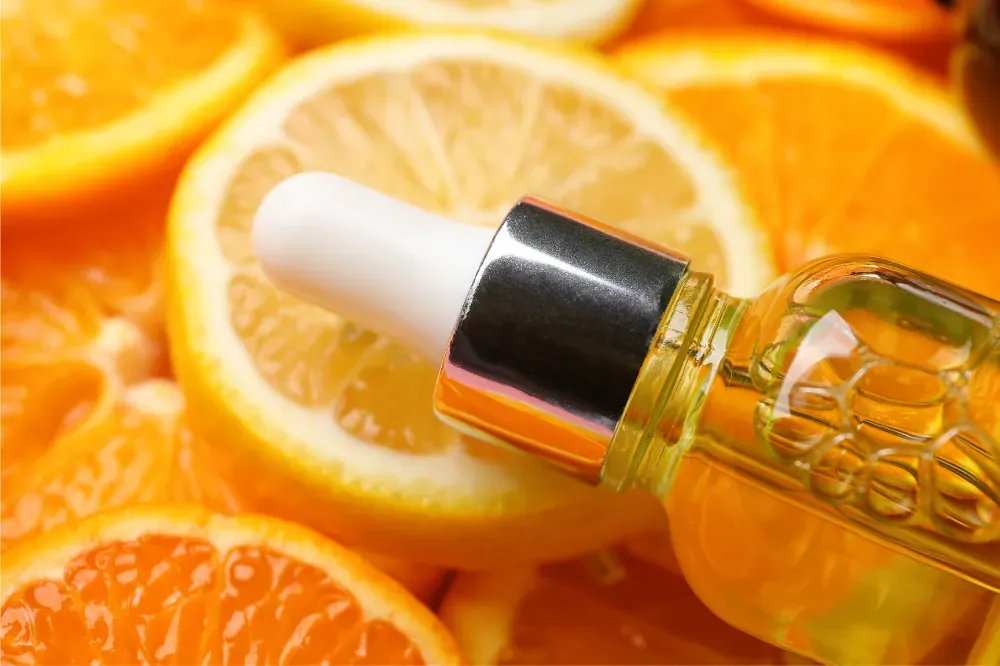
Peptides have taken center stage in the skincare industry not only for their stand-alone efficacy but also for their remarkable ability to work synergistically with other key skincare ingredients. This cooperative interaction between peptides and various compounds can lead to enhanced skincare benefits, including improved texture, tone, and overall skin health.
Combining Peptides with Other Skincare Ingredients
When peptides are formulated alongside other active ingredients, they can help boost the overall performance of a skincare product. For example, hyaluronic acid, known for its intense hydration properties, can pair well with peptides to deliver moisture deep into the skin while also supporting the skin's structural proteins. This collaboration results in a plumper, more youthful complexion.
Vitamin C is another powerful antioxidant that, when used with peptides, contributes to the skin's defense against free radicals while also stimulating collagen production. The stability of vitamin C can be compromised by exposure to light and air, but when integrated with peptides in cosmetic formulations, it can become more effective at penetrating the skin, thus amplifying its anti-aging effects.
Carrier peptides serve as another partner to traditional peptides, facilitating the delivery of trace elements like copper and magnesium to the skin. These elements are crucial for enzyme functions that support skin health, and their presence can help amplify the restorative effects of peptides on the skin’s elasticity and firmness.
The Benefits of Enzyme Inhibitor Peptides in a Comprehensive Skincare Routine
Enzyme inhibitor peptides offer a specialized approach to skincare. They function by slowing down the processes that lead to skin degradation. Studies suggest that certain peptides can inhibit enzymes such as collagenase and elastase, which break down collagen and elastin, respectively. By doing so, these peptides help preserve the skin's natural firmness and elasticity.
Moreover, research points to a noteworthy advantage of incorporating enzyme inhibitor peptides into a comprehensive skincare routine. These peptides can effectively target the mechanisms of aging at a molecular level, potentially providing a more sustained anti-aging benefit than some other ingredients alone.
Incorporating into a Skincare Regimen
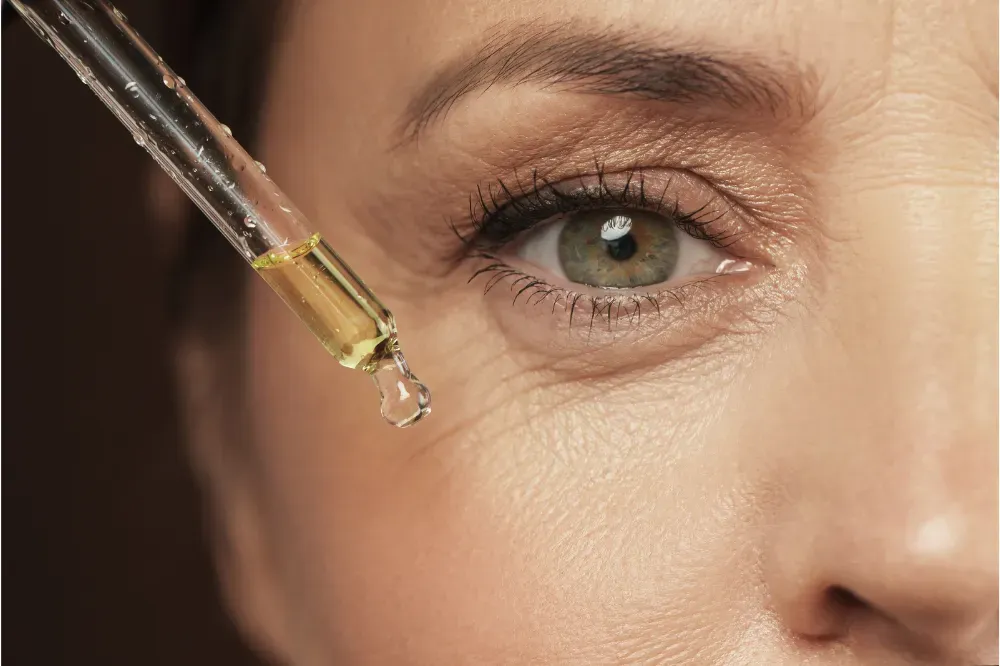
When considering the inclusion of powerful ingredients like peptides and Retinol into a skincare routine, it is important to understand their functions and how they can complement each other. The question of whether peptide is "better" than Retinol is not straightforward, as both have distinct benefits that contribute to skin health.
Recommendations for Introducing Peptides and/or Retinol into a Skincare Routine
Peptides are chains of amino acids that can penetrate the skin and send signals to our cells to let them know how to function. They are particularly known for their role in encouraging collagen and elastin production, leading to firmer, more youthful skin. Because peptides are generally gentle on the skin, they can typically be introduced into your skincare regimen without significant concerns for irritation.
Retinol, a derivative of vitamin A, is celebrated for its ability to accelerate cell turnover and boost collagen production. However, it can be quite potent and may cause irritation, especially when you first begin to use it. Studies such as the one published by FEBS Journal show that peptides can help stabilize Retinol, potentially making it more effective.
For those new to either ingredient, it's advisable to start with products that have lower concentrations. This allows the skin to adjust and minimizes any potential irritation. To integrate these ingredients, consider using peptides in the morning to take advantage of their protective properties and Retinol at night to aid in repair during sleep.
Tips on Performing a Patch Test and Starting with Lower Concentrations
Before fully incorporating peptides or Retinol into your daily skincare routine, it is wise to perform a patch test. Apply a small amount of the product to a discreet area of the skin, such as the inside of your wrist or behind the ear, and wait 24 hours to observe if there is any adverse reaction, as suggested by dermatological guidance.
If no irritation occurs after the patch test, you can proceed to apply the product to your face. Begin with a low concentration, particularly with Retinol, using it once or twice a week and gradually increasing frequency as your skin builds tolerance. For retinol products, it is key to incorporate a high SPF into your morning routine since Retinol can make your skin more sensitive to sunlight.
By carefully introducing peptides and Retinol into your skincare routine and using them in a way that complements their properties, you can harness their anti-aging benefits while minimizing potential side effects. Remember, everyone's skin is different, and what works for one person might not work for another. Monitor your skin's reaction and adjust your skincare regimen accordingly.
Peptides vs. Retinol for Various Skin Concerns
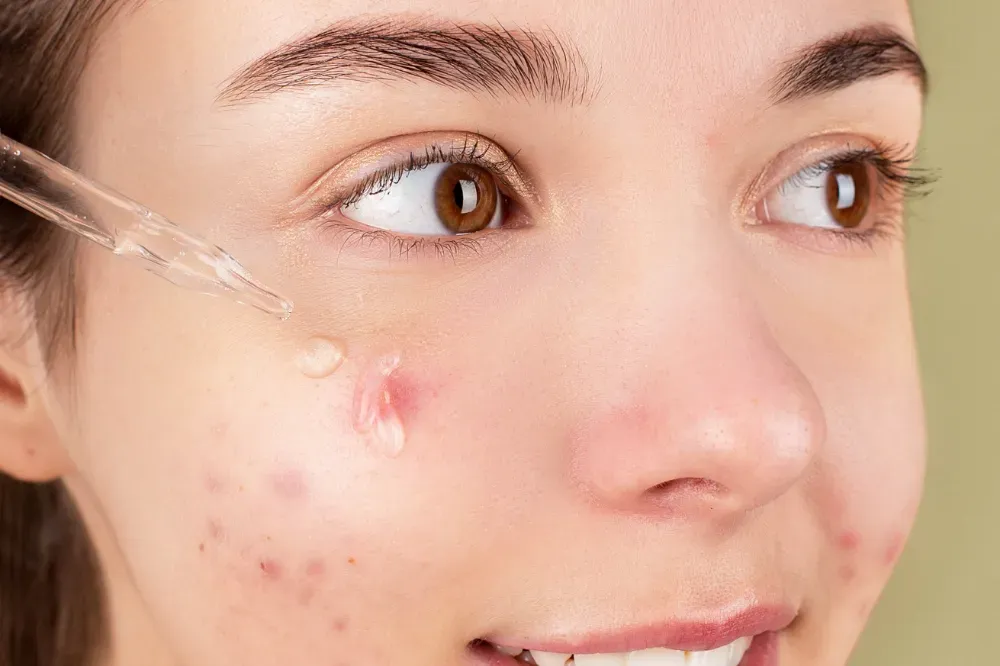
When addressing specific skin concerns such as acne scars, uneven skin tone, and loss of elasticity, both peptides and Retinol play distinct roles in skin care regimens.
The Effectiveness of Peptides and Retinol for Skin Concerns
Acne Scars: Peptides are reputed for their ability to aid in the healing process and may help reduce the appearance of acne scars by stimulating collagen production. A study on cosmeceutical peptides indicates that they could offer theoretical benefits from in vitro studies for various skin conditions. On the other hand, Retinol, due to its capability to promote cell turnover, can improve the texture and diminish the appearance of acne scars over time. A related article in The Clinics suggests that retinoids are a cost-effective method for enhancing skin appearance.
Uneven Skin Tone: For uneven skin tone, Retinol is renowned for its effectiveness. Its ability to accelerate skin renewal helps even out discoloration and brightens the complexion. As reported in the British Journal of Dermatology, topical retinoids have demonstrated efficacy in managing photodamaged skin, which includes improving skin tone. While peptides might not have the same level of evidence specifically for uneven skin tone, they are generally well-tolerated and may complement retinoid therapy to enhance overall skin health and appearance.
Loss of Elasticity: Peptides excel in the realm of anti-aging by signaling skin cells to produce more collagen, thus improving skin elasticity. The "Anti-aging skin care formulations" chapter describes the skin care benefits of peptides in facial creams, including improved elasticity. Retinol also supports elasticity by repairing the skin at a cellular level and promoting collagen production.
Case-by-Case Basis: Choosing Between Peptides and Retinol
Deciding whether to incorporate peptides or Retinol into your skincare routine should be based on individual skin health goals and tolerance. For those with sensitive skin who might not tolerate Retinol well, peptides can be an excellent alternative with fewer potential side effects.
For age-related concerns like loss of elasticity and fine lines, a regimen that includes both peptides and Retinol could be beneficial. However, it's important to introduce each ingredient slowly and monitor the skin's response. A comparative study of a cosmetic regimen that included niacinamide, peptide, and retinyl propionate suggested it had wrinkle reduction benefits while being well tolerated, underscoring the potential of using a combination approach.
Ultimately, the choice between peptides and Retinol, or the decision to use both, depends on personal skin concerns, desired outcomes, and how your skin reacts to each ingredient. Consulting with a dermatologist can provide tailored advice and ensure that your skincare routine aligns with your specific goals and needs.
Conclusion
In summarizing the unique benefits offered by both peptides and Retinol, it's evident that each brings its own set of advantages to the table. Peptides are known for their healing properties, capacity to stimulate collagen production, and contribution to enhancing skin elasticity and firmness. They are particularly beneficial for those with sensitive skin due to their gentle nature. Retinol is lauded for its potency in accelerating cell renewal, aiding in acne scar treatment, evening out skin tone, and supporting anti-aging efforts by promoting collagen synthesis.
Final Thoughts on Making an Informed Decision for a Skincare Regimen
When making an informed decision about whether to incorporate peptides, Retinol, or both into your skincare regimen, consider the following:
- Individual Skin Type: Sensitive skin may react better to peptides, while more resilient skin might benefit from the robust effects of Retinol.
- Specific Skin Concerns: If your priority is to combat acne scars and uneven skin tone, Retinol has a proven track record. Conversely, for concerns centered around aging and loss of elasticity, peptides can be highly effective.
- Tolerance and Reaction: Monitor your skin’s reaction when introducing new ingredients, and adjust usage accordingly to minimize irritation.
- Synergistic Effects: Using both peptides and Retinol, either in combination products or separately, can potentially provide comprehensive benefits. Ensure you understand the proper way to layer these ingredients if used in separate products to avoid skin irritation.
- Professional Consultation: Always consult with a dermatologist before starting any new skincare treatment, especially when involving active ingredients like peptides and Retinol. A professional can offer guidance based on your skin’s unique characteristics and health history.
In conclusion, both peptides and Retinol have their merits, and the decision to use one over the other, or to use a combination of both, should be informed by personal skincare needs and goals. With a thoughtful approach and possible professional guidance, you can tailor a skincare regimen that addresses your concerns and promotes the health and beauty of your skin.
FAQs: Combining Peptides and Retinol in Skincare
Can peptides and Retinol be used together?
Yes, peptides and Retinol can be incorporated into the same skincare routine, but with caution. It is generally recommended to use peptides in the morning and Retinol at night due to Retinol's sensitivity to sunlight. This separation also reduces potential irritation that could arise from using both ingredients simultaneously. Always ensure that you apply sunscreen during the day when using Retinol as your skin will be more sensitive to UV radiation.
How do peptides enhance the effects of Retinol?
Research suggests that peptides can support Retinol's activity by improving its delivery and stability. A study from the FEBS Letters journal indicates that certain peptides can bind to Retinol, potentially enhancing its delivery to fibroblast cells, which are critical for collagen production. This complementary relationship can make a combined regimen more effective for anti-aging and skin repair.
Should I choose products that contain both peptides and Retinol?
Products formulated with both peptides and Retinol can be beneficial as they offer a multifaceted approach to skincare concerns. However, it's important to note that such formulations should be carefully crafted to ensure ingredient stability and efficacy. According to research published in the European PMC, certain gel formulations have successfully combined encapsulated Retinol and peptides for enhanced skin benefits.
